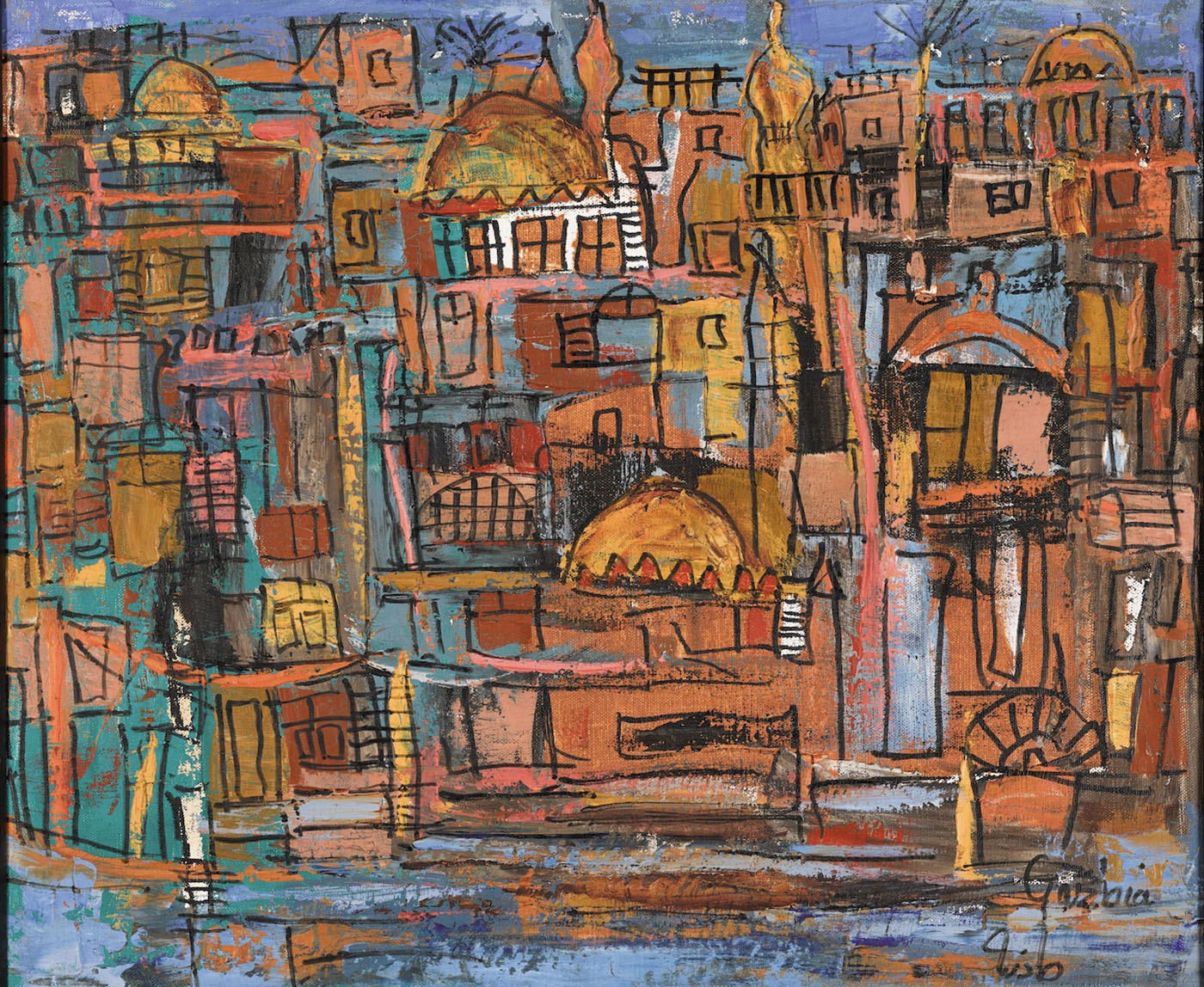Ancestral visitation in a Cairo internet store…
Sarah Eltantawi
Soon, I am moving from a rented apartment to my family’s apartment, which was previously rented to a phantasmic figure that is evidentially now in Australia (more on her later.) A hateful task hangs over my head — renewing the internet service. This requires walking into a store, taking a number, waiting, and almost certain delay and aggravation. I decided today was the day. Stuffed full of mahshe from the night before, I felt well fueled as I set out for the internet store without breakfast or lunch. I was highly caffeinated, steeled for the battle ahead.
My turn came. I sat on a purple chair, in front of a woman wearing a purple hijab. In fact, the store had a purple hue. I calmly explained my request and provided the phone number of the land line of the apartment. She languidly typed on her keyboard. “Can I see your ID?” I provided my ID. She entered more information. She looked at me dully. “Whose name is this phone number registered to?”
“My father’s name. (Recited his full laqab [chain of names] — his name, his father’s name, his father’s father’s name, his father’s father’s father’s name, the family name — I think I limited myself to 5).
“This name is not registered under that phone number. What is your name?”
I provided three names. My name, my father’s name, the family name.
“No, that’s not it either.”
“OK, try my uncle’s name, I think he pays the bill.”
I provided his name, his father’s name, his family name.
“No.”
“What do you mean no?”
“There is another name entirely on this account.”
“Excuse me?”
“Yes, no Eltantawi, no uncle’s name whatsoever.”
“That’s not possible. We’ve had this phone number for 20 years.” (I only slightly exaggerated. This is a requirement.)
“It’s a female name.”
I provide my mother’s name. Her Qur’anic name, her father’s name, her family name.
“No.”
I provide her nickname, her father’s name, her family name.
“No.”
I call my uncle and explain the situation, putting him on speaker phone. Maybe I have the phone number wrong? He confirms that I have it right. They go back and forth. Suddenly I think of something and say to my uncle, “Do you think it might be the girl who rented the apartment for one month?”

The purple girl looked slightly less bored. I was onto something.
“What is her name, Uncle?”
Uncle hangs up and calls my cousin and calls back and provides a name. Her name, her father’s name, her family name.
The purple girl confirms that this is the name registered under our phone number.
I say, “Well of course you must change this back to my father’s name immediately. He owns the apartment and the phone line.”
“You will have to go to the Central to see about this.”
I lost consciousness. I didn’t faint — my physical body was still present, but the person that I understood to be “Sarah Eltantawi” left my body and was replaced with what I think is an ancestor. “I” – what I had always previously thought was Sarah Eltantawi — watched this new person do the following:
She stood up, waived her slightly shaking finger in the air, and, in a passionate embrace of patriarchy, exclaimed, in perfect, non-American accented, non-halting Arabic, first in a low voice, then in a pitch that steadily rose…
“You dare to change the name of MY FATHER TO THE NAME OF A STRANGER OFF THE STREET????????”
All fell silent in the store. Purple girl’s eyes flashed with recognition of the gravity of the crime committed.
“She came in with papers, ma’am.”
“PAPERS???? PAPERS TO CHANGE THE NAME OF MY FATHER, THE GUARDIAN OF MY FAMILY’S DWELLING, PROTECTOR OF THE PHONE LINE, TO THE NAME OF A GIRL FROM THE STREET THAT WE DO NOT KNOW????? PAPERS????? WHAT PAPERS ARE THESE????”
The other girl rushed over and explained to me that the “girl off the street” needed to come and disconnect the phone line.
“SHE IS IN AUSTRALIA.”
“You can take this up in the Central.”
“UPON GOD, I WILL NOT LEAVE THIS LOCATION UNTIL THE NAME OF MY FATHER IS RESTORED!!!”
My uncle is still on speaker phone. I think I hear a chuckle. In the midst of my soliloquy, he had made some phone calls. He told me to turn off the speaker phone and go into a corner and talk to him. I obliged. He said that while my performance was somewhat amusing, technically, the “girl off the street” had done nothing wrong. In any case, he has somehow solved the problem and I needed to leave the premises and meet him at the bank.
“But I swore upon God!”
“OK, that’s great. Now leave the store.”
I hung up, and informed them that I would be leaving now, but that this situation VIOLATED THE VERY BASIS OF MORAL STABILITY.
I believe now that *I* — the person that I am used to claiming as myself — am back in my body. I assess the situation. On one hand, I know I was in the midst of a battle between Honor and bureaucratic rules, and I had chosen the right side. Plus, it wasn’t *me* fighting this honorable battle, it was an ancestor that had taken over my spirit. Luckily everyone understands this here. What I did discover for sure is that somewhere, buried in the depths of my soul, is a woman who dwelled honorably on these Nile shores long ago, and who, if you will permit me a moment of immodesty, no doubt got the best price on freshly slaughtered chicken in the land.




